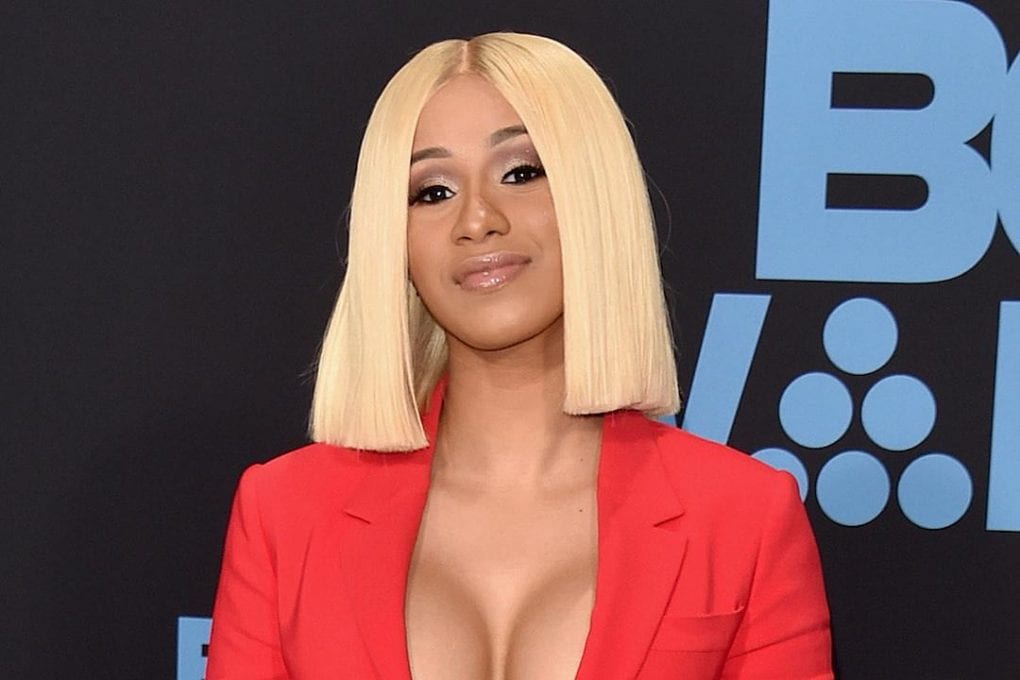by Claire Cheek, Ellen Nilsson, and Hannah Quiroz
After the release of her single “Bodak Yellow” in 2017, upcoming rapper Cardi B earned three number-one singles on the US Billboard Top 100, making her the first female rapper to attain more than one top song on the chart. From her inspirational rise from poverty and stripping to her infamous feud with fellow female rapper Nicki Minaj, Cardi has made headlines—though not always good ones. Recently, Cardi has been criticized for her use of the N-word, for appropriating black culture—she is Dominican and Trinidadian—and for ridiculing black women with darker skin by referring to them as “roaches.” Cardi claims that the term “roach” is a term to describe “trashy women in the Bronx,” but is also a racially demeaning term for dark women. In further interviews, Cardi has defended her use of the N-word: “when my father taught me about Caribbean countries, he told me that these Europeans took over our lands. That’s why we all speak different languages. I expect people to understand that just because we’re not African-American, we are still Black. It’s still in our culture.” Cardi’s words and actions are a prime example of colorism— discrimination on the basis of skin color where people are treated differently based on the social meanings associated with their skin color—a widespread issue within Dominican culture and society.
In an interview with DJ Vlad back in 2017, Cardi describes how she faced colorism while working as a stripper. She goes on to discuss her experience working in what she calls “white strip clubs in downtown”:
After discovering how much less she was making in comparison with white women she said that “sometimes it makes you feel like damn like you’re not even good enough.” Cardi B goes on to discuss how some of the women who were “lesser than her” received more money, despite doing “mad drugs.” She also describes how she moved to the “urban clubs, the clubs in the hood” in which she most likely received higher wages because of her lighter complexion. Unfortunately, in the way she describes her experience, she begins to demonize other strippers, especially strippers with darker skin and those who came from lower socioeconomic backgrounds. She claims that she has “better values.” Cardi B uses her platform to bring an important issue to people’s attention, but in doing so she herself participates in colorism.
Cardi B’s statements are merely one example of a much bigger problem. People with darker complexions, especially women, face near constant discrimination. Lighter complexions have been glorified and established as the standard for beauty. This is not an issue that will be ameliorated quickly. Any resolutions must start small. In our opinion, the first step to combating colorism is to recognize that even people of color can have racial and social privileges over others. Working as a stripper, Cardi B felt that women who “didn’t have their life together and were on drugs” only made money because of the colors of their skins and the sizes of their butts. Yet when she moved to a club with more women of color, she profited off the same social structure that put her at a disadvantage in the white clubs. It is not enough anymore for “woke” celebrities to simply address issues of racism, feminism, or queer rights. If celebrities with huge influence, such as Cardi B, continue to preach about certain issues yet completely contradict themselves in their actions, it sets a precedent for their fans. If celebrities choose to speak on identity politics, then they should also attempt to act in ways that reflect their thoughts.
Colorism has been extremely prominent within Dominican culture, as the lines between Latinx and Black communities and struggles are continually negotiated. In this Huffington Post article, the author Claudio Cabrera describes having to prove his Dominicanness to others because of his dark skin. Members of his own community questioned and taunted Cabrera by calling him the N-word and by forcing him to speak Spanish. Cabrera discusses the reasonings behind this insecurity within the Dominican community:
Cabrera’s comments register a racially toxic environment that perpetuates the notion that those with darker skin are inferior. At the same time, it is an environment in which appropriating black aesthetics and the vernacular are acceptable. Cardi’s actions and statements are the products of a long history of prejudice and stereotypes based on skin color. It is important to call her out for participating in colorism. At the same time, it is necessary to recognize the reasons and narratives that inform her remarks–or anyone’s. The disconnect between Cardi B’s opinions and her actions are derived from the long saga of racism.
Claire Cheek, Ellen Nilsson, and Hannah Quiroz are students in English 291: What Is Racial Difference?

